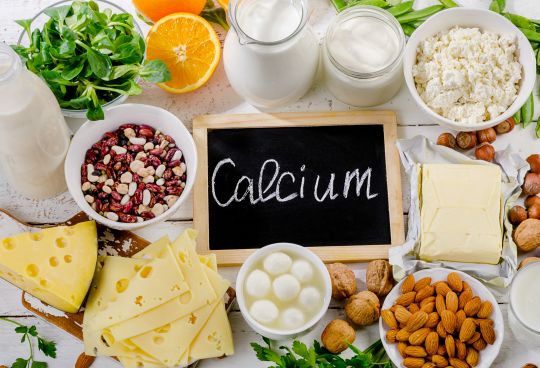
Blog BY Natalia Scully | 8 July 2018
The importance of Calcium throughout life

Calcium may be thought of as the nutrient needed for growing bodies and to help to prevent conditions such as osteoporosis.
Although this is true, it’s not the only benefit. Calcium is one of the most abundant minerals in our bodies and is therefore required for many functions:
- Our heart depends on calcium to help with its rhythmic contractions,
- Calcium helps release hormones and
- Calcium is important to help our cells communicate with each other.
Our bodies do however use 99% of its calcium to keep our bones and teeth strong and it is here where calcium is stored for later use.
It is important that we are getting enough calcium at key points throughout our lives. Since our bones are a living part of our body they need to be nourished every day to help support us during all stages of life as well as continuing other important roles that calcium plays within our bodies.
Babies, young children and teens need calcium to meet their daily requirements and keep up with how fast their bodies are growing. Infant and toddler years are the prime years to set the stage for bone growth and development. During adolescence, proper calcium intake is essential to maximise bone mass to reduce bone loss in later life.
Peak bone mass occurs at around age 30 so if you’re not getting enough calcium in your diet, your bone mass can begin to decrease.
Extra calcium is required throughout pregnancy and breastfeeding. Mothers’ bodies absorb more calcium at this time from the foods she eats so that babies can build healthy teeth and bones. If mothers are not having sufficient amounts of calcium, to support her baby’s growth, her body’s reserves will be utilised.
Women’s estrogen levels begin to decrease post-menopause. These hormonal changes can have a significant impact on your bone mass. Having optimal amounts of calcium will help your body cope with these changes that can have an impact on your bone mass and help reduce your risk of fractures and osteoporosis.
Calcium can be found in a vide variety of foods, particularly dairy products. If you are concerned about your calcium intake, please consult your health care professional.
